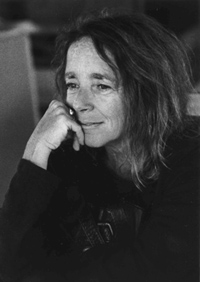Top 18 Quotes & Sayings by Ursula Goodenough
Explore popular quotes and sayings by a professor Ursula Goodenough.
Last updated on April 14, 2025.
The religious naturalist is provisioned with tales of natural emergence that are, to my mind, far more magical than traditional miracles. Emergence is inherent in everything that is alive, allowing our yearning for supernatural miracles to be subsumed by our joy in the countless miracles that surround us.
It seems far simpler to go ahead and say that the epic is a fantastic myth, that happens to be true of the material Universe, that other myths are true in terms of their cultural meaning, and that there's absolutely no problem with holding more than one story, just as there's no problem with viewing the sunset in terms of planetary rotation and spectra and nuclear fusions one moment and as visual splendor the next.
The biochemistry and biophysics are the notes required for life; they conspire, collectively, to generate the real unit of life, the organism. The intermediate level, the chords and tempos, has to do with how the biochemistry and biophysics are organized, arranged, played out in space and time to produce a creature who grows and divides and is.


















